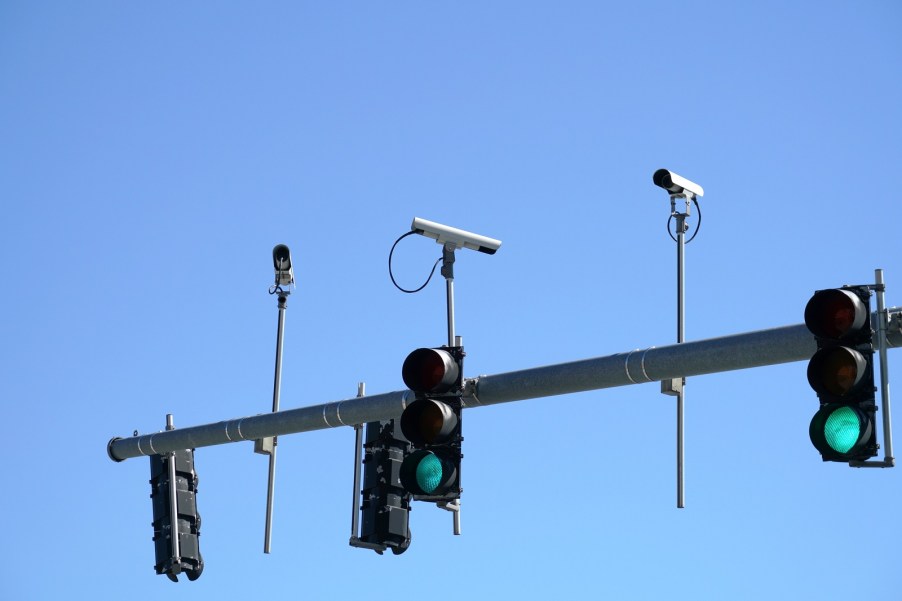
Not all traffic light cameras are there to issue tickets, but they might be spying on us anyway
Over the weekend, I came across a reel posted by a traffic camera serviceman. He explained to viewers that not all traffic light cameras issue red light violations. The serviceman opened the control cabinet to show what the cameras posted at this particular intersection were actually doing.
These specific cameras detect and measure vehicle positions and determine the most efficient traffic light patterns. For example, say a line of cars is stacking up. The camera’s software will detect this. Then, it ensures that the most crowded lane gets a green light faster than another lane with zero cars waiting.
However, I noticed the serviceman’s laptop displayed a live feed of the intersection, and it got me thinking.
Sure, traffic cameras aren’t always there to issue tickets. What’s more, many of them aren’t actually recording and storing the feed. But, if they are recording, that footage can indeed be viewed by the manufacturer, local or other officials, or via private requests. As such, authorities might use this footage to either support or convict drivers involved in recorded incidents.
The ability to record, store, and share traffic light camera footage varies by state and even locality. Of course, some cameras only capture stills and point in a specific, narrow direction.
In fact, after researching, I found that it’s overall very difficult for drivers to tell which cameras are capturing a live feed. What’s more, determining who gets access to stored footage could be even more difficult.
In Ohio, the Department of Transportation (ODOT) offers live feeds of traffic cameras all over the state. You can watch them at any time. The department also saves footage for a minimum of 72 hours. As a member of the public, you can easily fill out a footage request form. ODOT says it will quickly respond. The department also says that, without getting into details, it saves some footage for longer than 72 hours.
In the above reel’s comment section, a few drivers explained that they used a traffic light camera recording to prove their case after an incident. Others say they requested footage only to be ignored or denied footage.
Traffic light cameras aren’t the only devices that could be recording us in our cars. Back in May, we reported that a company called Flock Safety is recording tens of millions of license plates nationwide via its extensive camera network. The captured footage is available to various public service authorities and by private contract access, like an HOA.
My point here is that even if traffic light cameras serve a specific purpose unrelated to recording us, any live feed or stored footage is certainly viewable by others. As such, you might be able to request the footage. Alternatively, authorities or other parties granted access might use footage against you. This doesn’t necessarily bother me since I’m not out there road raging or knowingly breaking traffic laws, but take this however you may. I’m more or less going to assume a camera installed at a traffic light has the ability to watch me to a certain extent, for whatever it’s worth.



